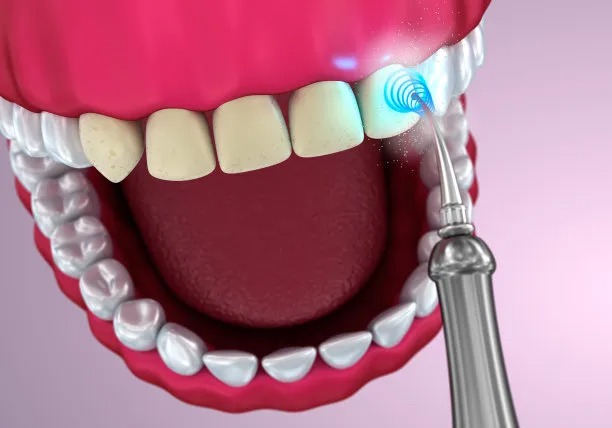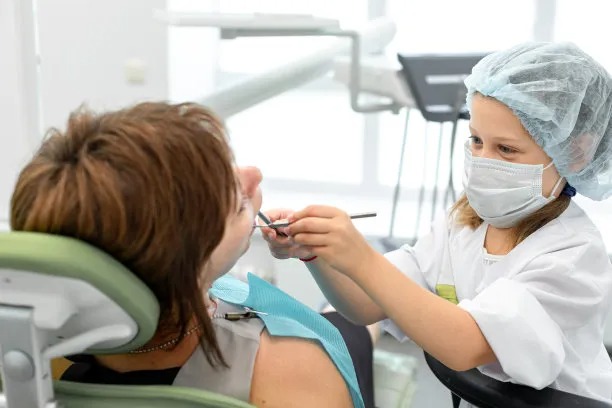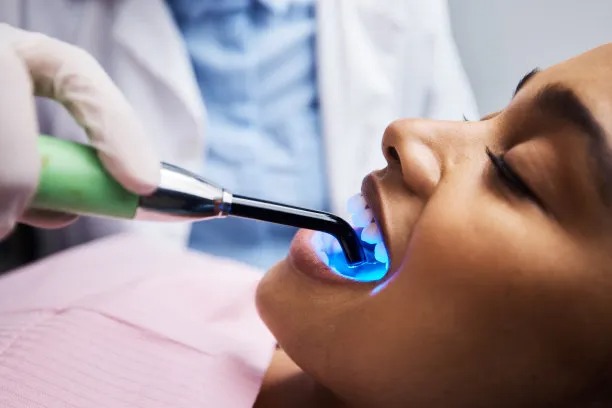Summary: Tooth extraction is a crucial dental procedure that may be necessary for various reasons, including severe decay, overcrowding, or infection. Understanding when extraction is essential helps patients navigate their dental health more effectively. The procedure itself can often be anxiety-inducing, but knowing what to expect can alleviate those concerns. This article delves into the importance of tooth extraction, the reasons behind it, the procedure details, post-operative care, and how to prepare for it effectively. With this comprehensive guide, individuals will feel more informed and confident in their dental health choices.
1. Reasons for Tooth Extraction

Tooth extraction is often necessary for several reasons, the most common of which is severe dental decay. When a tooth is extensively damaged by cavities that penetrate deep into the tooth structure, it might become impossible to restore it with fillings or crowns. In such cases, extracting the tooth can prevent the spread of infection to surrounding teeth.
Another significant reason for extraction is overcrowding. In orthodontic treatment, dentists may recommend removing certain teeth to create space for proper alignment of the remaining teeth. This is particularly relevant in younger patients whose jaws are still developing.
Additionally, wisdom teeth often require extraction. These teeth typically emerge in late adolescence or early adulthood and can cause various issues, including pain, infection, or misalignment. Preventive extraction of wisdom teeth can help avoid future complications.
2. The Extraction Process Explained
The tooth extraction procedure begins with a thorough examination by the dentist, usually involving X-rays to assess the tooth鈥檚 roots and surrounding bone. This helps the dentist create an effective treatment plan tailored to the patients specific situation.
Once the need for extraction is confirmed, the dentist will administer local anesthesia to numb the area around the tooth. This ensures the patient experiences minimal discomfort during the procedure. For more complicated extractions, sedation options may also be offered to help patients relax.
Next, the dentist will carefully loosen the tooth from its socket using specialized instruments. If the tooth is impacted or difficult to remove, a surgical extraction may be required, involving a small incision in the gum to access the tooth. Post extraction, the dentist will protect the area with gauze to control bleeding and begin the healing process.
3. Post-Operative Care and Recovery
After a tooth extraction, proper post-operative care is essential for minimizing discomfort and ensuring a smooth recovery. It is normal to experience some swelling and pain, which can usually be managed with over-the-counter pain relievers as advised by the dentist.
Patients should avoid rigorous activities for at least 24 hours to prevent complications such as bleeding or dislodgment of the blood clot that forms in the extraction site. Following a soft food diet is also recommended; foods such as yogurt, applesauce, and mashed potatoes are gentle on the healing gums.
Maintaining oral hygiene is crucial, but care should be taken to avoid disturbing the extraction site. Gentle rinsing with warm salt water can aid in healing and reduce the risk of infection. If any unusual symptoms occur during recovery, such as prolonged pain or fever, patients should contact their dentist promptly.
4. Preparing for a Tooth Extraction
Preparation is key to a successful tooth extraction. Prior to the appointment, patients should provide their dentist with a complete medical history, noting any medications they take or health conditions they have. This information is vital for determining the safest approach for the extraction procedure.
On the day of the extraction, patients should arrange for transportation, especially if sedation is involved. Its advisable to wear comfortable clothing and avoid eating or drinking anything for a few hours before the procedure as instructed by the dentist.
In addition to physical preparation, mentally preparing for the procedure is equally important. Understanding the process and what to expect can significantly alleviate anxiety. Engaging in relaxation techniques such as deep breathing or visualization can also help calm nerves prior to the appointment.
Summary:
In summary, tooth extraction is a vital procedure that serves specific dental health needs. Knowing the reasons for extraction, understanding the steps involved, and being aware of post-operative care can empower patients to make informed decisions about their dental health. With adequate preparation and understanding, the process can become much less daunting.
This article is compiled by Vickong Dental and the content is for reference only.
Vickong Dental
Vickong Dental is a large medical group established in Hong Kong in 2008 by professors from well-known medical universities in Guangdong and Hong Kong, as well as medical doctors from key national '985' universities (including Master's supervisors and senior professors). The chain of branches brings together expert dentists with PhDs and Master's degrees from Hong Kong and Mainland China, committed to providing high-quality dental treatment.
"Vickong Dental Practices the University Motto of 'Healing and Serving Society,' with a Stable Operation for Sixteen Years. It Has Been honored with Hong Kong Enterprise Leaders's Choice,' and is a Global Trusted Implant Center for the Nobel Implant System. Recommended by Hong Kong Metro Broadcast and Guangdong Television, it Serves Customers from Over Thirty Countries and Regions, Gaining the Trust and Favor of Citizens from the Guangdong-Hong Kong-Macau Greater Bay Area and Surrounding Cities.

Thousands of customers' unanimous praise
The most recognized and highly recommended dental service by customers in the Guangdong-Hong Kong-Macau Greater Bay Area
We Ensure You Receive Detailed Care and Attention Here
Hong Kong standards, Shenzhen prices, Your Trusted English-speaking dentists

Vickong Dental Medical-Grade Instrument Disinfection Process
Vickong Dental Medical-Grade Instrument Disinfection Process

Vickong Dental Chain: A Warm and Comfortable Environment for Treatment






Appointment Hours

Q&A
Why choose Vickong Dental?
Vickong Dental practices the university motto 「Medicine to Benefit Society」, with each branch bringing together highly qualified dentists with doctoral and master’s degrees from Hong Kong and the Mainland, and has maintained seventeen years of steady operation。Recipient of 「2024 Hong Kong Enterprise Leaders Brand」, 「2025 Hong Kong Enterprise Leaders Brand」, a Nobel Biocare Global Trusted Implant Center, and a brand recommended by Metro Radio Hong Kong and Guangdong TV。
To date, we have served customers from more than thirty countries and regions,earning exceptionally high word-of-mouth recognition and trusted recommendations from residents across the Guangdong-Hong Kong-Macao Greater Bay Area and surrounding cities
We have eight major branches in Zhuhai、Shenzhen,and a consultation and service assurance center in Hong Kong,so you can book a free consultation at any time for any questions,which is very reassuring.
If I do not accept the quotation after the CT scan, will I be charged??
No! As long as the actual treatment has not started, you will not be charged any fees.
Will there be any additional charges during the treatment process?
No, there won’t be any additional charges. Before treatment begins, we will clearly explain the treatment plan and its corresponding fees. Only after the patient agrees and signs the consent form will we proceed with the dental service.
Can I pay in Hong Kong dollars?
Yes. Vickong Dental accepts payment in Hong Kong dollars. The amount will be converted based on the exchange rate of the day, and the applicable rate will be clearly communicated to you in advance.
Can I reschedule my appointment at any time?
Yes. Please contact us via **WeChat** or **WhatsApp** as early as possible, providing your original appointment time and details, along with your preferred new date and time slot for rescheduling.













